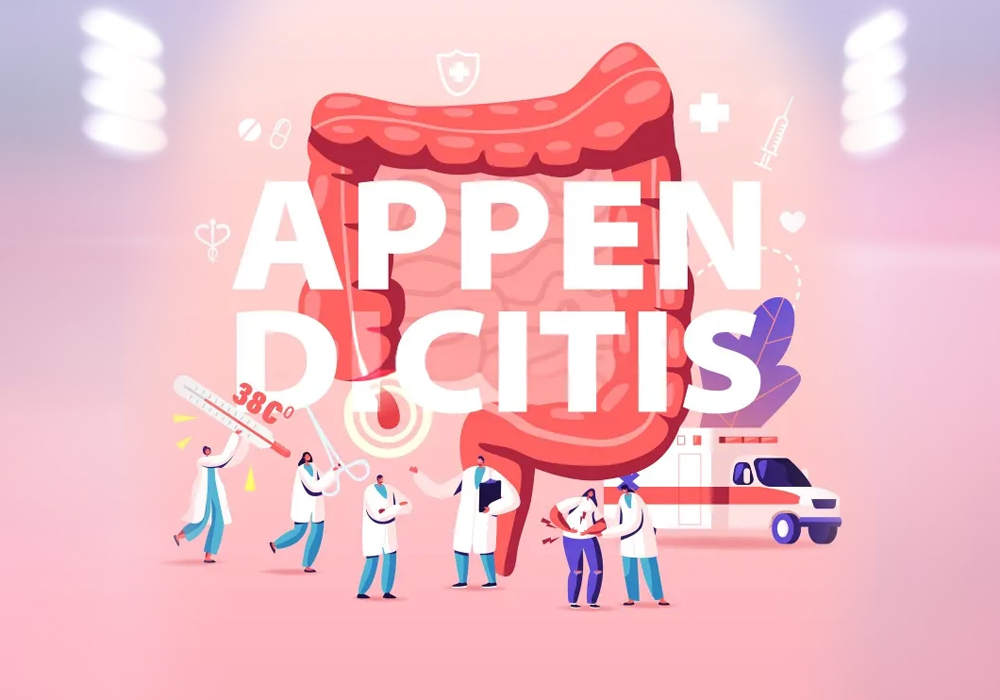Get Treated at Be Well Hospitals

The appendix is a finger-sized tube that connects the big and small intestines. It has no known purpose, but if it becomes inflamed or infected (appendicitis), you will require emergency treatment. An inflamed appendix can produce intermittent pain. It could also break open (rupture), causing extreme discomfort.
Bacteria can spread through the abdominal cavity if the appendix ruptures. These bacteria cause peritonitis, a potentially fatal infection. Appendicitis can occur at any age, but it is most frequent in persons in their twenties and thirties.






The standard treatment for appendicitis is an appendectomy, the surgical removal of the appendix. At Be Well Hospitals, we offer:
Laparoscopic Appendectomy: Minimally invasive surgery with small incisions, leading to quicker recovery and less postoperative pain. Recovery time for patients often resume normal activities within 1–3 weeks.
Open Appendectomy: Traditional surgery, used in cases of widespread infection or complications. Recovery time for patients may take 2–4 weeks.
Surgical removal of the appendix, known as an appendectomy, is the most effective and common treatment for appendicitis.
In rare cases, mild appendicitis may be treated with antibiotics, but surgery is the safest and most reliable solution to prevent complications.
Appendicitis is usually caused by a blockage in the appendix, which can result from infection, stool, or inflammation.
If left untreated, appendicitis can lead to a ruptured appendix, causing serious infections and complications.
Each patient undergoes a detailed medical assessment to confirm appendicitis. This includes a review of symptoms, physical examination, blood tests, and imaging (like ultrasound or CT scan) to determine the severity and urgency of the condition.
Once diagnosed, the patient is prepared for surgery. Preoperative steps may include fasting, hydration through IV fluids, and administration of antibiotics to reduce infection risk before the procedure.
An appendectomy is generally performed under general anaesthesia. This ensures the patient remains completely unconscious and pain-free during the surgical removal of the inflamed appendix.
The surgeon proceeds with either a laparoscopic (keyhole) or open appendectomy based on the case complexity. The appendix is carefully removed to prevent rupture and further infection.
After surgery, the patient is monitored in the recovery area for vital signs and anaesthesia effects. Pain relief medications and antibiotics may be administered. The care team ensures a smooth transition to recovery.
Patients receive clear postoperative care instructions including diet, wound care, activity restrictions, and signs to watch for. Follow-up visits are scheduled to track healing and ensure a full recovery.